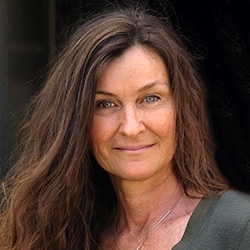

Search Results: nvc
-
-
-
How we choose to communicate can either open or shut down connection.
-
Learn to foster trust, peace, and cooperation in your family using Nonviolent Communication.
-
Please join us as we take a deeper look into this mysterious word, “community.” In this Trainer Dialogue recording, we explore the living process of creating, uniting and nurturing NVC communities so that they transcend yet sustain and empower their members.
-
In a workshop, a hesitant white neurodivergent man faced a triggering reaction from a Global Majority transgender man. Uncovering their backgrounds, the facilitator addressed family dynamics and exclusion. A repair exercise fostered empathy, challenging assumptions and emphasizing the importance of equitable facilitation for a richer group experience.
-
-
Exploring how to keep NVC natural and authentic without sounding mechanical or formal.
-
Practice real-life NVC dialogue and role-play to master the dance of authentic communication.
-
Marshall Rosenberg suggests that there are two requests that are the most transformative to relationships, (1) What’s alive in both of us? and (2) What would make life more wonderful for both of us? This telecourse recording offers an easy-to-digest overview of how carefully crafted requests inspire joyful relationships.
-
Master the conversational dance through real-life NVC role play, modeling, and dialogue practice.
-
When was the last time you were in a situation with an overwhelming feeling of shame or an unnerving fear of 'doing it wrong'? Sometimes we get sweaty palms or a dry mouth, maybe we freeze on the spot or start an unhelpful internal monologue that makes the situation feel even worse. In this months NVC Life Hack Gesine takes a closer look at her own experience with shame and the fear of doing it wrong.
-
A lot of us picked up new hobbies and learning new things during the COVID lockdown. After recently posting a puzzle on Facebook, Shantigarbha ended up being delightfully surprised at the conversation it began around NVC in relation to learning and education. Watch the video to hear our tips and click see more for the solution to the padlock puzzle below.
My solution to the padlock puzzle:
042 seems to conform to all five clues.
Is this also your understanding?
-
Have you been struggling with the difficulties that can arise from working at home? If you're used to working from an office, a space that is designed for work, it can be a shock working from a space that is usually associated with other kinds of activities. In this Life Hack, we look at ways that NVC can help you deal with potential conflicts that arise.
-
We can get stuck in our heads. All kinds of thoughts float into our minds. We then get thoughts about those thoughts, they might even make you feel a certain way or change a behaviour. But what happens when we connect our feelings with the physical sensations in our bodies? As part of our teaching at NVC we have incorporated movement work to help us connect with where we hold emotions and how we can process them effectively.
-
Have you ever used the phrase "it was just a miscommunication."? We're often good at identifying when communication breaks down but not so good at finding out what went wrong and how we can improve. In this NVC Life Hack, we take a look at different types of communication requests and how they play out in a role play.
-
Listen as Mary Mackenzie shares an eight step path to create your own NVC learning activities, based on your own NVC learning experience. In this session, Mary uses the value of requests and observations as teaching examples.
-
- Reclaim the lost voices of your ancestors
- Understand the impact of collective trauma on your family line
- Open yourself up to have more warmth for yourself and your children
- Restore the flow of love and energy from past generations
-
Trainer Tip: Mary explains how Nonviolent Communication, a process that distinguishes needs from strategies is also itself, a strategy.
-
How we deal with “no” is a litmus test of our state of consciousness around power. Listen as John works with participants as they learn to give and receive a "no" from a consciousness of interpersonal connection.
Quick Links

Stay in Touch!
We value your privacy, won't share your email address and you can easily unsubscribe any time.
















